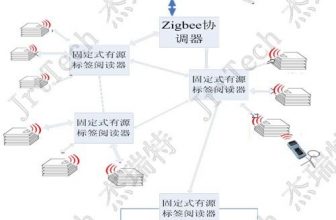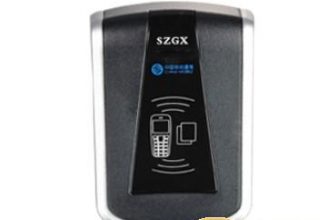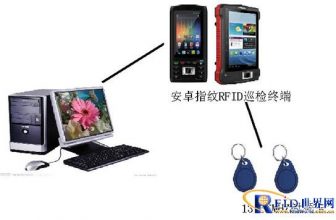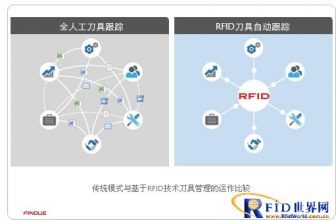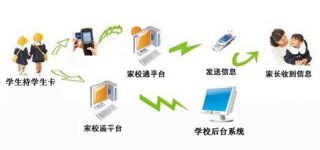
RFID Home-School Communication System Solution
[ad_1]
1. System development background
With the gradual improvement of the intelligent management system and the continuous updating of information facilities, the school’s security prevention and control capabilities have been greatly enhanced. Aiming at the school’s attendance management of students in and out of school, parent pick-up, safe text messages, etc., combined with the advantages of our company’s semi-active RFID technology, our company deliberately developed this system “home-school communication based on semi-active RFID radio frequency identification technology” Ping An SMS System” plays an important role in the safety management of students in school. Ping An SMS system is an advanced system that uses modern information technology to realize real-time communication between parents and schools. It uses advanced computer technology and wireless transmission technology to effectively solve the communication between parents and teachers to help children grow up healthily. bottleneck.
Semi-active RFID technology is used to monitor the card reading of personnel entering and leaving the campus, so that there is no need to line up to swipe the card for attendance, and it is possible to accurately know the student’s arrival and departure time to supervise and manage student safety. At the same time, the parents will be notified in conjunction with the SMS platform, so that they can obtain the status of the students, so that they can respond in some special occasions. It solves the management of automatic entry and exit judgment of students, student attendance management, and safe SMS management. Significantly improve the safety and management efficiency of school students, improve management efficiency, and reduce the work intensity of management personnel. At the same time, the system has an open interface and has many extended functions, such as linkage with video surveillance systems to achieve refined management.
2. System overview
1. Current status and analysis
Due to the large number of students in the school and the high mobility within the school, it is difficult for ordinary teachers to grasp the situation of each student’s visit to the school in a timely manner, and parents cannot know in time whether their children go to school and leave school on time. Once a child skips class and does not go to school or absent from school to play after arriving at school, teachers and parents cannot understand the specific situation in real time, which will bring great difficulties to student safety management and children’s education. Therefore, both the school and the parents need to know the following information:
Student safety status (whether it is safe to arrive at school, leave school, etc.)
Student attendance status (whether to arrive or leave school on time, whether to arrive late, leave early, etc.);
Student performance at school (or at home) (test scores, learning attitude, good behavior, etc.);
2. Functional advantages
The home-school communication security SMS management system is a requirement for the safety of the entire teaching industry. It can provide parents with accurate information about their children’s arrival and departure and at school. At the same time, it is also a scientific campus management method that can improve campus security. And the modern management level of the campus.
For schools:
|
|
——Attendance management information |
|
|
At the same time to achieve efficient and intuitive attendance management for students and faculty |
|
|
——Student Management Information |
|
|
Establish student electronic files and form student electronic resumes with rich content to facilitate student internship and employment. |
|
|
|
|
|
For parents of students: |
|
|
——Real-time and convenient access to student entry and exit information |
|
|
Parents can keep abreast of the time points when students enter and leave the school, no longer have to worry about students’ movements, and work with peace of mind. |
|
|
|
|
|
For students: |
|
|
——Family call |
|
|
Students can establish free telephone communication with their parents through the communication platform. Especially for students studying in different places, the function of family telephone has undoubtedly become an indispensable way of communication between students and their parents. |
|
|
——Portable electronic resume |
|
|
It can store the student’s electronic resume and become a personalized business card that students can carry with them and display them at any time. |
|
|
——Credit payment consumption |
|
|
Students can use the electronic student ID card to consume in the consumption places designated by the school. |
3. Advantages of semi-active RFID technology solutions
1. Introduction to RFID technology
RFID (Radio Frequency Identification Technology) is a non-contact automatic identification technology that automatically recognizes target objects and obtains related data through radio frequency signals. Conceptually, RFID is similar to barcode scanning. The barcode scanning technology is to attach the encoded barcode to the target and use a dedicated scanning reader to use photoelectric signals to transmit information from the bar magnet to the scanning reader; and RFID Then use a dedicated RFID reader and a dedicated RFID unit that can be attached to the target, and use RFID signals to transmit information from the RFID unit to the RFID reader.
At present, there are roughly three categories of products derived from RFID technology: passive RFID products, active RFID products, and semi-active RFID products.
Active RFID products and passive RFID products have different characteristics, which determine different application fields and different application modes, and they also have their own advantages. But in this system, we focus on introducing semi-active RFID products between active RFID and passive RFID. This product integrates the advantages of active RFID and passive RFID. Positioning management, security alarm and other fields have great advantages.
2. Introduction to semi-active RFID technology
Semi-active RFID products, combined with the advantages of active RFID products and passive RFID products, under the trigger of the low frequency 125KHZ frequency, let the microwave 2.45G play its advantage. Semi-active RFID technology, which can also be called low-frequency activation trigger technology, uses low-frequency short-distance precise positioning, microwave long-distance identification and upload data to solve the functions that pure active RFID and passive RFID cannot achieve. Simply put, it is to activate positioning at a short distance, identify and upload data at a long distance. Truly achieve the demeanor of a general of “strategic strategy, decisive victory thousands of miles away”.
3. Features and advantages of semi-active RFID technology
Semi-active RFID is a flexible application technology that is easy to control, simple and practical, and especially suitable for automatic control. The identification work does not require manual intervention. It can support both read-only working mode and read-write working mode without contact Or aim; can work freely in various harsh environments, short-distance radio frequency products are not afraid of oil stains, dust pollution and other harsh environments, and can replace bar codes, such as tracking objects on the assembly line of a factory; long-distance radio frequency products are mostly used in traffic, The recognition distance can be up to tens of meters, such as automatic toll collection or vehicle identification. Its unique advantages are beyond the reach of other identification technologies, mainly in the following aspects:
Easy and quick to read:
Data reading does not require a light source, and can even be carried out through the outer packaging. The effective recognition distance is larger, and the effective recognition distance can reach more than 100 meters;
Fast recognition speed:
Once the terminal tag enters the magnetic field, the reader can read the information in it instantly, and it can process multiple terminals at the same time to achieve batch recognition;
Large data capacity:
The two-dimensional barcode (PDF417) with the largest data capacity can only store up to 2725 numbers; if it contains letters, the storage capacity will be less; RFID terminals can be expanded to 10K according to the needs of users;
Long service life and wide application range:
Its radio communication method makes it possible to work in highly polluted environments such as dust and oil pollution and radioactive environments without being in them. The closed packaging of the terminal makes the service life much longer than the printed barcode;
The label data can be changed dynamically:
The programmer can write data, which gives the RFID tag an interactive portable data file function, and the writing time is less than that of printing a bar code;
Better security:
Not only can it be embedded or attached to products of different shapes and types, but also password protection can be set for the reading and writing of terminal data, thus having higher security;
Dynamic real-time communication:
The terminal tag communicates with the reader at a frequency of 50 to 100 times per second, so as long as the object attached to the RFID terminal appears within the effective recognition range of the reader, its position can be dynamically tracked and monitored.
Four, system introduction
1. System introduction
The home-school communication security short-term system is a world-leading comprehensive information management system developed by using high-tech remote radio frequency identification (RFID) technology, mobile phone short message service platform and computer information processing technology. Parents provide an information service platform.
Using long-distance RFID technology and low-frequency activation technology, the low-frequency activator of readers is installed at the school gate, and students will be activated to read when they carry tags in and out. The tags are usually in a dormant state to save power and increase the service life of the tags. The reader uploads the tag ID and the activation antenna ID to the system server via RJ45, WIFI or GPRS, and the home-school communication system can determine specific information (such as: person’s name, location, time of appearance, etc.) after processing, and at the same time send students The information of entering and leaving school is sent to the parents of students through short messages, so as to provide effective management methods for parents to keep abreast of the students’ trends and the situation of the school. The system server can also sort out various attendance reports during this time period (such as late/early leaving records, non-attendance time, etc.) according to the information of personnel entering and exiting the school gate during the period of school and end of school.
Student card: A semi-active tag is used as the student card. The tag is usually in a sleep state. It will automatically send the tag ID and the activation antenna ID number every 200ms (parameters can be set) after entering the activation area, and the tag will automatically sleep after leaving the activation area;
Reader installation: Two directional readers are installed at the school gate, one reader is installed outside the school, and the other reader is installed inside the school. The identification tag ID and the corresponding activation antenna ID can effectively determine the student’s In and out state.
Activator installation: Install a 125K low-frequency activator (with two different ID125K coils) at the school gate, one antenna inside and outside the school gate, and work synchronously.
Data transmission: The reader will transmit the recognized student card information to the school’s server via RJ45, GPRS or WIFI, and the system can judge the student’s entry and exit status based on the returned information.
Background Services:
1) The background system sends the student’s entry and exit information to the parents through the SMS modem or SMS platform operator, so that the parents can know the student’s school situation well.
2) The system administrator can record student information through the home-school management system network platform. Such as test scores, rankings, class information, etc. Parents can view student information through the online platform.
3) Parents, teachers and school administrators can log in to the school’s network platform to communicate. Parents can know the learning situation of their children in school in time.
2. The working principle of the system
The activator is installed in the guard room or the surrounding area, and two 125K coils are led out; they are the activation antenna No. 1 and the activation antenna No. 2. When students with dual-frequency electronic tags enter the school gate, the distance from the activation antenna No. 1 is 1-3.5 meters When the range is in The ID information of the tag itself and the ID of the activator are sent to the reader at a certain rate. The reader receives the radio frequency signal from the dual-frequency electronic tag and the IP of the activator and transmits it to the background through the 485 or TCP/IP interface; with the students When gradually entering the inside of the gate, the electromagnetic wave energy carried by the activator gradually weakens until the dual-frequency electronic tag can no longer be activated, and the B activator starts to activate the vehicle electronic tag. After the electronic tag is activated, the ID information of the electronic tag itself and the activator The IP is sent to the reader at a certain rate. The reader receives the radio frequency signal from the dual-frequency electronic tag and the IP of the activator and transmits it to the background through the 485 or TCP/IP interface. The background is read according to the order and difference of the low-frequency activator. The ID number of the activator antenna to make a judgment;
The system specifically consists of the following parts:
RFID readers, low frequency activators, tags and card issuers
System server computer
SMS platform such as SMS gateway
Home-School Communication System Software
Receive SMS mobile phone
Five, system topology diagram

1. System function
The home-school communication system includes four management modules: information management module, school-leaving management module, attendance management and abnormal alarm module. This system mainly describes the school-leaving management module, which is also the core function of home-school communication. The typical RFID technology is used to report on the safety of students. The specific function module diagram is shown in Figure 2 below:
2. Information management module
For all students in the school, RFID tags are issued uniformly, and the system of one person, one card is implemented. Through the database, the tags used by each student are mapped to the student information, that is, the student information is bound to the tag ID number. This part contains three parts:
Student information addition: For newly enrolled students or students who have reissued a card, new RFID tags are issued, the tags are authorized to be managed, and the personnel information is corresponded to the RFID tags.
Deletion of student information: When a student graduates, the tag is lost, etc., the student’s RFID tag needs to be scrapped, and the RFID tag related information must be deleted.
Student information modification: In the case of students entering a higher education, class transfer, etc., it is necessary to re-manage the RFID tag information and modify the corresponding student information.
3. Go to the school-leaving management module
This is the core part of the home-school communication system. When a student leaves school, a short message will be sent to the parent or teacher to report the student’s school-leaving time to the parent or teacher, so that parents can know the safety status of the child’s school-leaving, and reduce parents’ worries. , Can also play a retrospective role. This part also contains three blocks:
ID acquisition: The student’s tag ID number and the activation antenna ID are automatically collected through the RFID reader, and the student’s entrance and exit time is obtained in real time.
Data transmission and processing: upload the tag ID information to the system server, compare and identify the student information through the server’s database, confirm which student it is, the corresponding grade class, parent name, mobile phone number and other information, and at the same time judge the student’s in and out direction.
Safe SMS sending: After confirming the student’s information, the system server will issue an instruction to send safe SMS to the corresponding parent and send it via SMS modem.
The above process is shown in the figure:
4. Attendance management module
When students enter and exit the school, the system can also be used as student attendance records while sending safe text messages. Register the student’s arrival and departure time in the system, which is used as the student’s attendance judgment. The student’s attendance management module includes manual attendance, intelligent attendance and attendance time settings.
Manual attendance: In case of special circumstances, such as label loss, damage, etc., the administrator can assist by manual attendance.
Intelligent Time Attendance: The use of long-distance RFID cards for attendance, which can recognize multiple tags at the same time, save time, and does not require manual intervention, which improves work efficiency and reduces the possibility of errors.
Attendance time setting: Attendance time setting refers to the time when the attendance system is activated. During the set time period, the attendance system works normally. After this time period, the system will shut down.
Attendance record query: The system administrator can query the attendance record of a certain student in a certain period of time through the system, or the attendance record of a certain class or grade, and can print it into a report for easy management.
5. System features
The RFID-based home-school communication security short-term management program has the following characteristics:
Real-time tracking of students’ arrivals and departures from school, and timely notification to parents, so that parents can rest assured;
Prevent students from skipping classes or going out abnormally, which greatly facilitates the management of the school;
Automate student attendance every day;
Query the student’s school status in real time;
The system can identify all students entering and exiting the school at one time to avoid missing reading; l
Intelligent management can be performed on sensitive areas or illegal areas of the school.
[ad_2]



